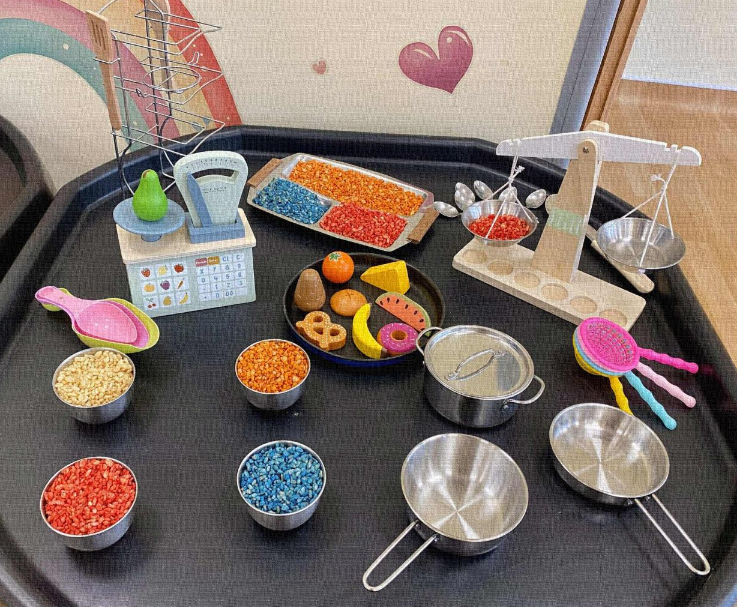EECERA Conference 2025 – Guest Blog # 32: Paving the Path to True Inclusion in Childcare
Posted 23rd August 2025
One of a series of short blog posts by presenters who will be sharing their work at the upcoming annual conference in Bratislava, Slovakia. Any views expressed in this post are those of the author(s) and do not necessarily reflect the official stance of their affiliated institution or EECERA.
Paving the Path to True Inclusion in Childcare
By Jefflyn Grech, University of Malta, Malta

With seven years of experience as a Programme Coordinator for Inclusion in Childcare at the
Foundation for Educational Services (FES) in Malta, I have seen both inspiring successes and
heartbreaking difficulties in early childhood inclusion. This motivated me to research the supports and hindrances to inclusion within Maltese childcare centres.
Why This Research Matters
Early support is crucial for children, particularly those with or at risk of disabilities, as it is
fundamental to their future development (Clark et al., 2018). Furthermore, high-quality, inclusive childcare practices benefit children, families, and society as a whole (Kim et al., 2020). However, a significant research gap exists for children aged 0-3 in Maltese childcare settings. My recent Master’s research, funded by the Ministry for Education’s Tertiary Education Scholarship Scheme, addressed this by exploring the experiences of parents of children with disabilities and childcare staff, alongside an analysis of national policies. This study offered crucial insights into the practical supports and barriers to inclusion.
Unpacking the Realities: Supports and Challenges
My research reveals that inclusion in Maltese childcare is a developing process with varied
experiences. While positive practices are present, significant challenges may result in exclusion. Parents and staff identified similar aspects, albeit with some differing perspectives.
Key Supports for Inclusion:
- Caring and Empathetic Educators: Empathetic educators with a strong commitment
to inclusion are vital for building positive relationships. Their inclusive beliefs empower
them to adapt learning for every child (Schaub & Lütolf, 2023). - Strong Collaboration: Strong collaboration between parents, professionals, and staff is
a key support for inclusion. It is crucial for planning, sharing knowledge, and ensuring
consistent support (Lieb et al., 2023). - Flexible Approaches and Planning: Centres using flexible teaching methods and
collaborative values can effectively adapt learning opportunities (Aubert et al., 2017).
This involves adjusting routines and using flexible assessments like observation (Hsieh,
2024).
Major Challenges to Inclusion:
- Insufficient Training and Knowledge: A major barrier is inadequate staff training, which leaves educators feeling unprepared and helpless, resulting in negative attitudes about disabilities (Maguvhe, 2023; Schaub & Lütolf, 2023). This feeling of helplessness limits a centre’s ability to provide support (Lieb et al., 2023).
- Systemic Inequity: Significant systemic hurdles exist, where support is often treated as
a burden instead of an equitable process. This results in funding struggles, long service
waiting lists, and families needing costly private support. - Difficulties in Collaboration: Despite its importance, effective collaboration may be
hindered by logistical challenges and differing perceptions between parents and staff. - Inconsistent Policy Application: Although policies align with a social model of
disability, practical application is inconsistent due to a lack of resources, training, and
collaboration. Consequently, some centres succeed while others struggle, sometimes
seeing exclusion as the only viable option. - Unresponsive Staff-to-Child Ratios: Current staff-to-child ratios are perceived as
inadequate, limiting progress for children with disabilities and fostering non-inclusive
environments. This leads to staff frustration and discouragement.
Key Points to Take Away
At the upcoming EECERA 2025 symposium, I will delve deeper into these findings, offering a
comprehensive look at inclusion in Maltese childcare. You will gain:
- Detailed insights from the experiences of parents and childcare staff.
- An understanding of national policies and their real-world impact.
- Practical recommendations for strengthening inclusive practices, including a shift to a
tier-based support model (Alzahraney, 2023), and improved training for educators. - A discussion on enhancing parental involvement and ensuring necessary resources are
available. - An exploration of why investment in early inclusive practices is crucial for the future
(Ring et al., 2019).
My research shows that while challenges are significant, positive change is possible. By
understanding the current landscape, we can work together to build a community where every
child is valued and supported (Turner, 2019). I invite you to join this crucial conversation.
Together, we can pave the way for a more inclusive future in childcare.
See you at EECERA 2025.
Jefflyn Grech will present work referred to in this blog in Symposium Set F4 (Wednesday 27th August). (Schedule liable to change; please refer to final programme for details).
Connect with me: Email: [jefflyngrech@gmail.com] LinkedIn: [linkedin.com/in/jefflyn-grech-
99248a235] Facebook: [https://www.facebook.com/jefflyn.grech]
